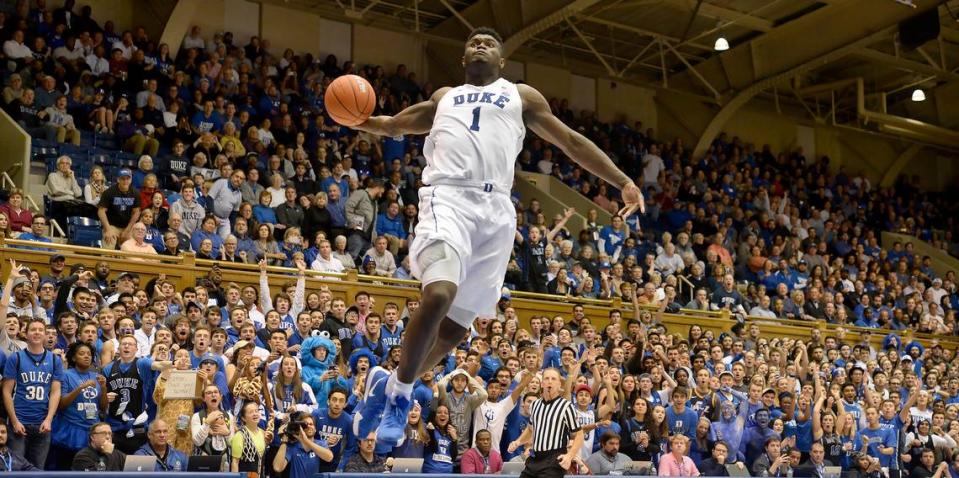Federal judge: NC agent laws protect Zion Williamson in five-year dispute with former agent

A federal appeals court judge sided Monday with former Duke basketball star Zion Williamson after a years-long dispute with his one-time marketing agent, Gina Ford.
The ruling, written by Judge Albert Diaz for the U.S. Court of Appeals Fourth District, upheld a January 2021 ruling in favor of Williamson that found Ford, a Florida-based sports agent, failed to adhere to North Carolina’s strict athlete-agent laws when she signed Zion Williamson in 2019, thus voiding that deal shielding him from penalties for breaking it.
Ford had been seeking $100 million in damages from the current New Orleans Pelicans all-star player since the two sides filed lawsuits against each other in June 2019. Judge Loretta Biggs ruled in the U.S. District Court for the Middle District of North Carolina in January 2021 that Ford violated the state’s Uniform Athletes Agents Act during her dealings with Williamson.
Ford was not a registered sports agent in North Carolina when Williamson signed the contract with her agency, Prime Sports Marketing. In addition, the agreement failed to include the required warning to Williamson of the ramifications of signing with an agent, including the loss of his collegiate eligibility. Both are required under N.C. law.
“Prime concedes that Ford wasn’t registered as an agent in North Carolina,” Judge Diaz, who was joined on the opinion by two other federal appellate judges, wrote in the decision released Monday. “Under the Act, any agency contract between a student-athlete and an agent who fails to register in North Carolina is void. Likewise, it’s undisputed that the Prime contract did not contain the required warnings.”
Williamson played the 2018-19 college basketball season at Duke, where he was named a first-team all-American and ACC player of the year while helping the Blue Devils win the ACC championship and reach the NCAA Tournament’s Elite 8 round.
The Pelicans made him the No. 1 overall pick in the 2019 NBA Draft and he’s played his entire pro career with that franchise, making NBA All-Star teams in 2021 and 2023.
Willamson, along with his mother and step-father, began meeting with Ford during his lone season at Duke. Williamson signed with Ford and Prime Sports Marketing in April 2019, after Duke’s basketball season had ended, and she began lining up marketing deals for him.
Ford sought damages from Williamson after he broke her agreement with him to allow Creative Artists Agency (CAA), which had signed him for contract negotiations, to also represent him in marketing deals. Earlier court filings in the case included her claims that she sent Williamson’s father $100,000 after he demanded advance payment on the contract.
Ford also made unsubstantiated claims Williamson had violated NCAA amateurism rules while at Duke, which would have rendered him “permanently ineligible” and thus, she claimed, not bound by NC laws governing sports agents.
Williamson’s legal team, which includes Charlotte attorney John Wester, successfully argued none of her claims were valid because her initial contract with Williamson was flawed.
“Prime advances several additional arguments as to why Williamson was ineligible, none of which persuade,” Diaz wrote.
Ford and her attorneys also sought damages from Williamson for fraud and misappropriation of trade secrets, claiming he had shared with CAA the marketing plan she prepared for him. Biggs, in the federal district court in Greensboro, ruled for Williamson back in 2021 and Diaz’s opinion upheld her ruling.
“Though parties negotiating at arm’s length may have a duty to disclose some things, a party has no duty to disclose that he’s negotiating with a third party in a commercial transaction,” Diaz wrote.
He later added “the district court held that Prime’s marketing materials weren’t trade secrets. We agree.”

 Yahoo Sports
Yahoo Sports 
